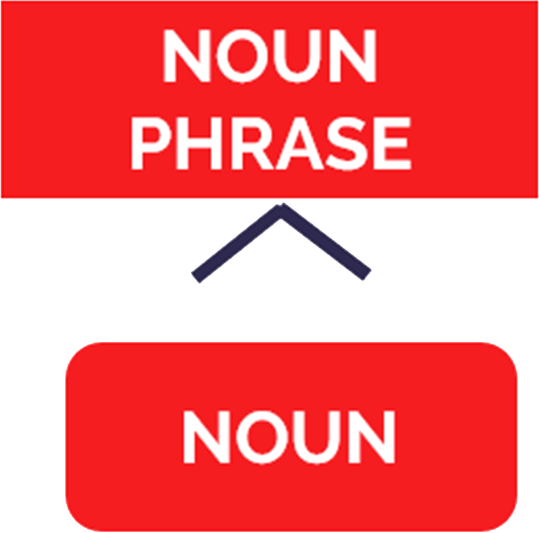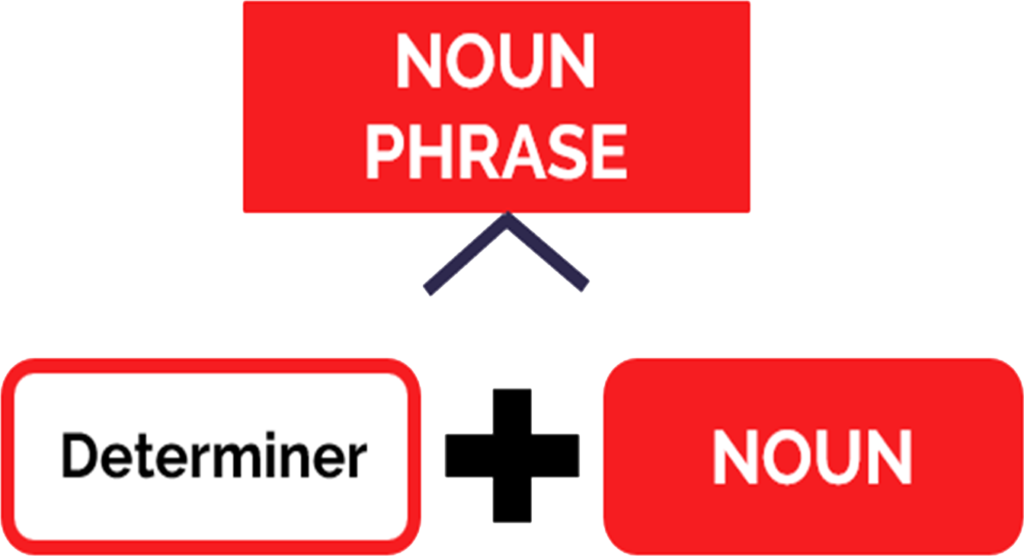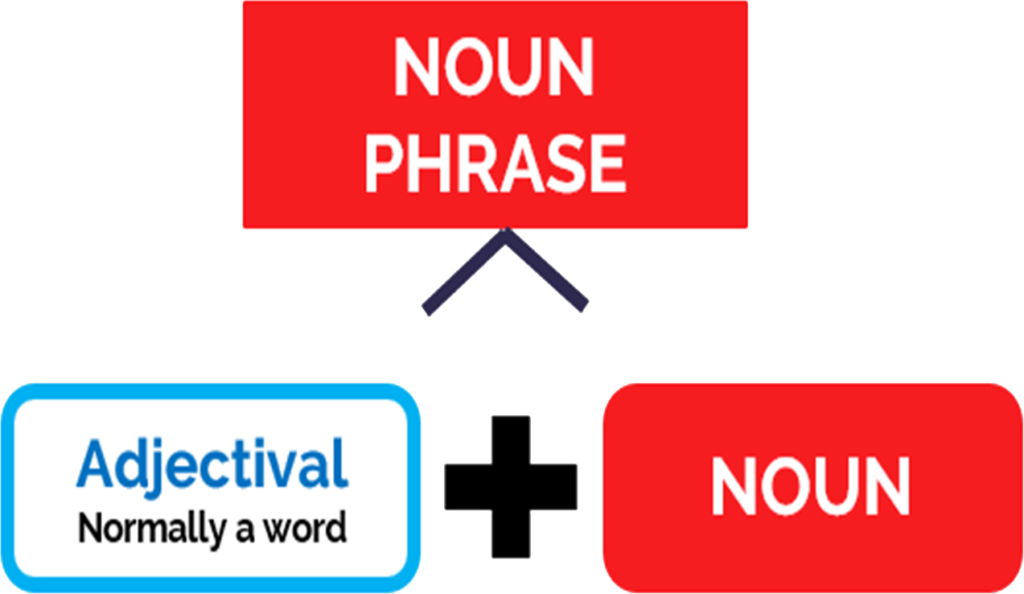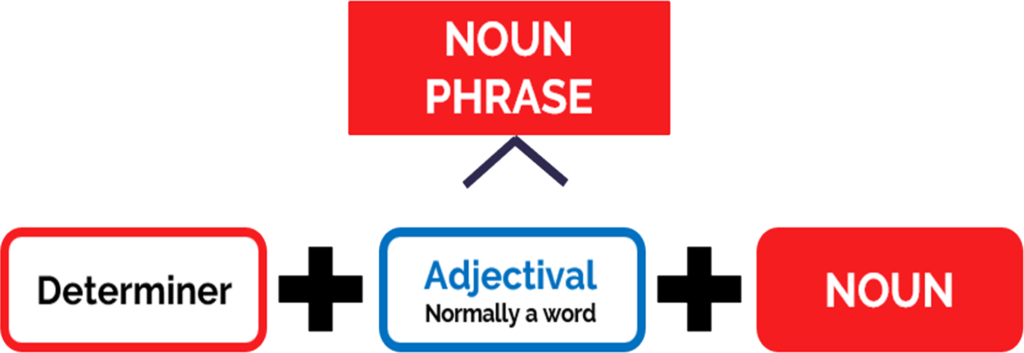chapter 2: noun phrases
Nominal Subjects are the first required element for all clauses. Noun Phrases are a basic structure that makes up the majority of subjects in our language. A noun phrase can be either a single word or multiple words. This means that the only required element for a noun phrase is a noun:

As you’ll recall from Chapter 1, a NOUN is a form-class word that typically names entities or concrete/abstract things. However, keep in mind that a noun phrase represents those structures that can fulfill a noun role. So a “noun phrase” can be a single word or multiple words. More importantly, as a single word, a noun phrase is most commonly a typical noun (form-class word), but a noun phrase can also be a pronoun (structure-class word) that serves a noun (or nominal) role (subject, direct object, indirect object, object of the preposition, etc.).
- Mr. Smith
- people
- dogs
- I
- he
- she
- they
- we
- you
If a noun phrase contains more than one word, the first optional element is a determiner

As you’ll recall from Chapter 1, there are seven primary sets of determiners: definite article, indefinite article, demonstrative determiner, possessive determiner, indefinite determiner, cardinal determiner, and ordinal determiner. Each of these can serve as the first element in a noun phrase. In most cases, only one determiner per noun phrase, although the ordinal determiner often combines with articles as the lone exception.
- the dog
- a dog
- this car
- that car
- these cars
- those cars
- my house
- our coursework
- your yard
- his/her/its hair
- their business
- some cars
- other cars
- each car
- many cars
- one hedgehog
- two wheelbarrows
- two hundred applications
- the first day
- a second chance
- the last man standing
The second optional element is the adjective/adjectival.

As you’ll recall from Chapter 1, an ADJECTIVE is a form-class word that typically modifies a noun (or nominal).
In a noun phrase, the adjective can appear with just a noun:
- happy people
- yellow parakeets
Or it can appear between a determiner and a noun:

- a friendly dog
-
those dirty cars
-
my yellow house
-
some economical cars
-
two loaded wheelbarrows
While a NOUN is required for a noun phrase, other words might also be present. These other words are optional, but if they appear, they will follow a predictable pattern. We can think of these as the function slots for noun phrases.
We will discuss the adjectival function in more detail in Chapter 3. The adjective element of the noun phrase is normally one word at a time, although the number of adjectives that can appear in a noun phrase is essentially unlimited:
-
a big, friendly, scruffy, brown dog

